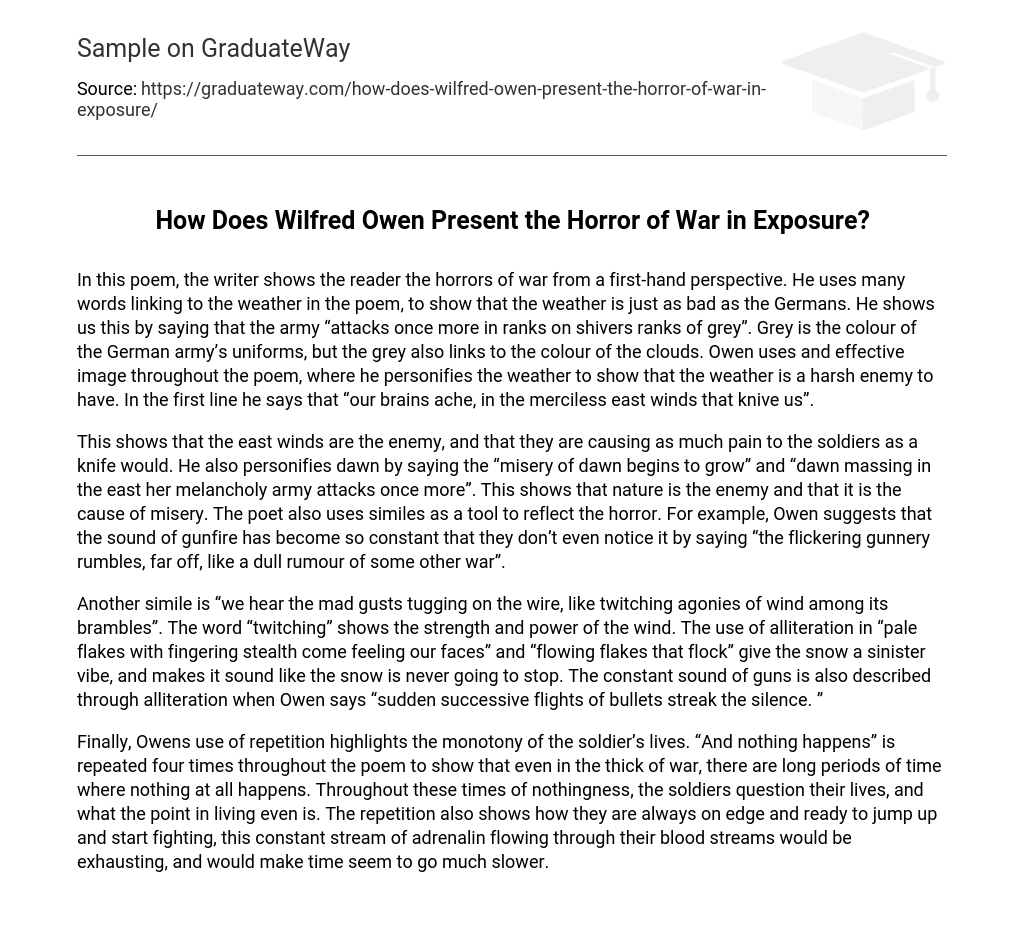In this poem, the writer shows the reader the horrors of war from a first-hand perspective. He uses many words linking to the weather in the poem, to show that the weather is just as bad as the Germans. He shows us this by saying that the army “attacks once more in ranks on shivers ranks of grey”. Grey is the colour of the German army’s uniforms, but the grey also links to the colour of the clouds. Owen uses and effective image throughout the poem, where he personifies the weather to show that the weather is a harsh enemy to have. In the first line he says that “our brains ache, in the merciless east winds that knive us”.
This shows that the east winds are the enemy, and that they are causing as much pain to the soldiers as a knife would. He also personifies dawn by saying the “misery of dawn begins to grow” and “dawn massing in the east her melancholy army attacks once more”. This shows that nature is the enemy and that it is the cause of misery. The poet also uses similes as a tool to reflect the horror. For example, Owen suggests that the sound of gunfire has become so constant that they don’t even notice it by saying “the flickering gunnery rumbles, far off, like a dull rumour of some other war”.
Another simile is “we hear the mad gusts tugging on the wire, like twitching agonies of wind among its brambles”. The word “twitching” shows the strength and power of the wind. The use of alliteration in “pale flakes with fingering stealth come feeling our faces” and “flowing flakes that flock” give the snow a sinister vibe, and makes it sound like the snow is never going to stop. The constant sound of guns is also described through alliteration when Owen says “sudden successive flights of bullets streak the silence. ”
Finally, Owens use of repetition highlights the monotony of the soldier’s lives. “And nothing happens” is repeated four times throughout the poem to show that even in the thick of war, there are long periods of time where nothing at all happens. Throughout these times of nothingness, the soldiers question their lives, and what the point in living even is. The repetition also shows how they are always on edge and ready to jump up and start fighting, this constant stream of adrenalin flowing through their blood streams would be exhausting, and would make time seem to go much slower.





